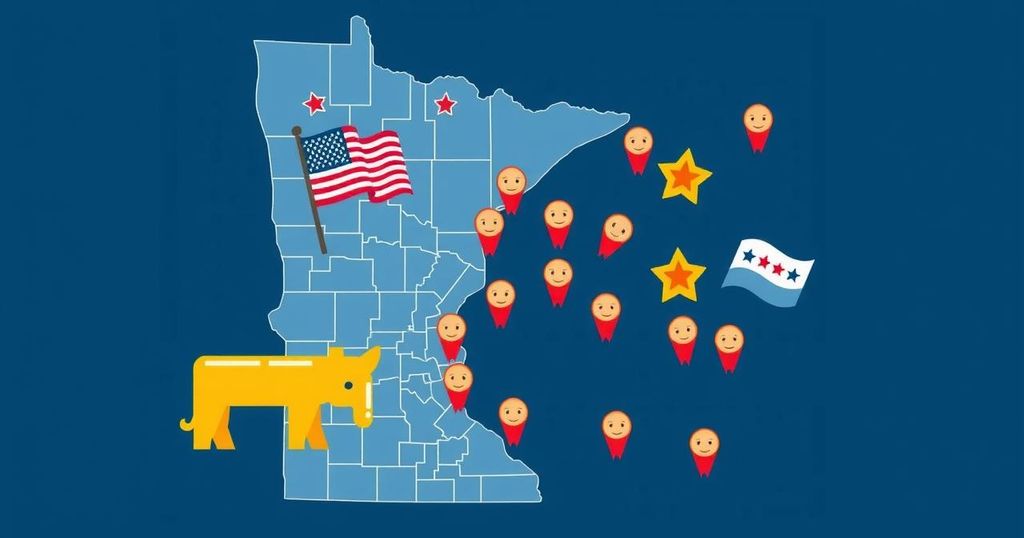Shift in Somali Voter Support in Minnesota Reflects Growing Discontent with Democrats

The 2024 presidential election marked a decline in support for Democrats among Somali Minnesota voters, driven by concerns over the Israel-Gaza conflict, economic issues, and feelings of neglect from the party. Kamala Harris narrowly won in key precincts, but many Somali voters expressed a shift towards Republican candidates, reflecting a changing political landscape.
The 2024 presidential election revealed a notable decline in support for the Democratic Party among Somali voters in Minnesota, transitioning from a historically loyal bloc to a group expressing considerable discontent. Key factors influencing this shift include dissatisfaction with the Biden administration’s policies regarding the Israel-Gaza conflict, economic grievances, and feelings of neglect from Democratic representatives. Although Kamala Harris won Minnesota, her margins were significantly narrower than those achieved by President Biden in 2020, particularly in Minneapolis precincts with substantial East African populations, where her support fell by significant percentages. Activists reported a strong movement urging Somali voters to cast their ballots for third-party candidates, citing anger over U.S. foreign policy and frustrations with local Democratic leadership. Additionally, numerous Somali individuals expressed a perception that economic conditions were better under former President Donald Trump, and socio-cultural issues, particularly related to family values, emerged as critical points of contention. In this context, some Somali Americans aligned their political preferences toward the Republican Party compared to traditional Democratic loyalty. The results indicate a fracturing of loyalties within the Somali American community, suggesting that political affiliation is increasingly driven by specific issues rather than party allegiance. Furthermore, community leaders have expressed concerns regarding the Democratic Party’s engagement with Somali voters, emphasizing the urgency of addressing their unique challenges to avoid further erosion of support in future elections.
The Somali American community in Minnesota has historically been a stronghold for the Democratic Party, particularly due to shared values on social issues and advocacy for immigrant rights. However, recent political developments, particularly related to U.S. involvement in international conflicts and domestic economic concerns, have raised critical questions regarding this allegiance. The 2024 elections showcased a marked shift in voter behavior as Somali Americans began reconsidering their political options, influenced by a combination of foreign policy irritation regarding the Israel-Gaza situation and local economic challenges.
In conclusion, the decline in support for Democrats among Somali Minnesota voters highlights a significant shift in political alignments, driven by dissatisfaction with economic management, foreign policy positions, and perceived neglect from party leaders. This trend suggests that Somali Americans are actively reassessing their political loyalties, indicating a need for both major political parties to engage deeply with this community’s concerns to regain and maintain their support in future elections.
Original Source: www.startribune.com







